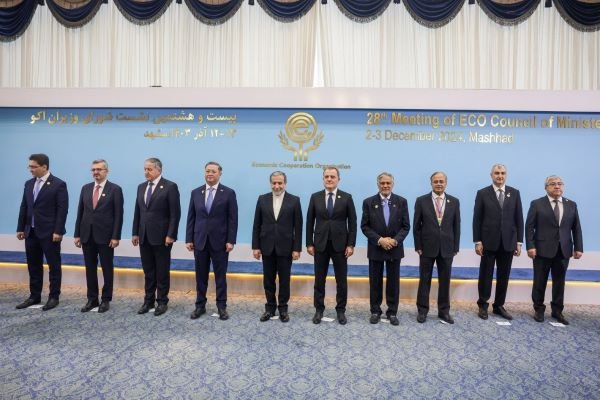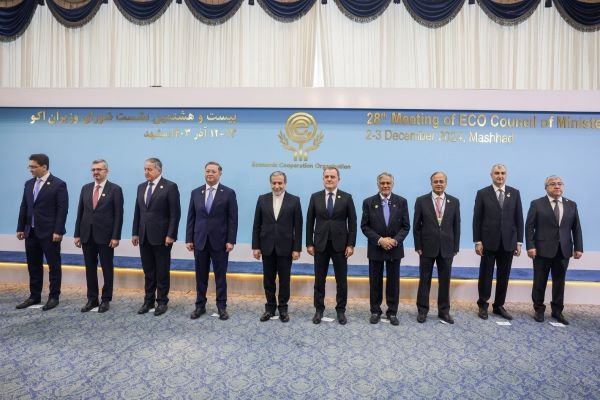
Foreign ministers from ten countries, along with representatives from numerous others, convened in Mashhad, Iran, for the 28th meeting of the Economic Cooperation Organization (ECO) Council of Ministers recently. Several issues and developments were discussed, including the war in Gaza, the renewed wave of terrorism in Syria, and the path towards more economic prosperity for the member states.
During a speech, Iranian Foreign Minister Abbas Araghchi accused the United States and Israel of fueling the recent surge in terrorist activities in northern Syria, urging the global community to act decisively against the resurgence of Takfiri terror groups in the war-torn nation. He emphasized the need for vigilance and collaboration among regional countries, alongside swift international intervention, to address the growing threat of terrorism.
The top Iranian diplomat highlighted the Zionist regime’s sustained atrocities in West Asia, particularly in the Gaza Strip, where Palestinians have endured more than a year of relentless aggression. He also pointed to Israeli crimes committed against Lebanon and expressed concern over the resurgence of Takfiri groups in Syria following a ceasefire agreement between Lebanon’s Hezbollah Resistance movement and Israel.
Araghchi attributed the reorganization of these terrorist factions to direct backing from the U.S. and Israel. He underscored the strategic intent behind this support, aimed at destabilizing Syria and undermining its democratically-elected government led by President Bashar al-Assad. Last week, the foreign-backed Hayat Tahrir al-Sham (HTS) terrorist group launched a surprise assault in Aleppo province, capturing several villages and towns before advancing into the region on November 27.
These developments mark a dangerous escalation in a conflict that has plagued Syria since 2011, as foreign-sponsored terrorism continues to hinder Damascus’s efforts to restore stability. Araghchi reiterated Iran’s position that Western powers and their regional allies have consistently supported such terrorist groups to destabilize Syria and the broader region. He called for a unified regional response to neutralize these threats and safeguard the sovereignty of affected nations.
Elsewhere in his remarks, the Iranian foreign minister spoke of the steps the ECO must take to become a more powerful international bloc. “We have to be guided by decade-long lessons and experiences as well as past failed attempts as we are jointly moving forward in the current regional and global landscapes.”
Araghchi added that the ECO member states have been working together to foster regional cooperation in the areas such as trade, transport, tourism, energy, food and agriculture, health, banking, customs, investment, disaster reduction, judicial, and law enforcement. “However, our accumulated capacities for individual and regional development are huge. We need to firmly push for the full realization of this untapped potential.”











